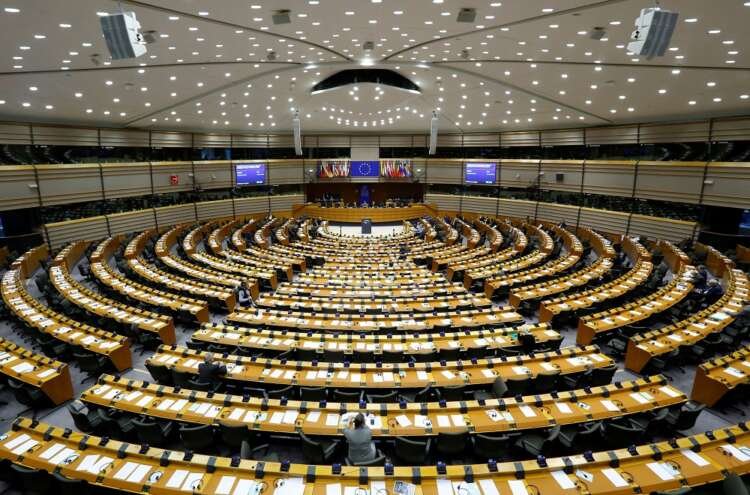EU lawmakers face hundreds of amendments in key votes on climate policies


By Kate Abnett
BRUSSELS (Reuters) -The European Parliament will vote this week on a raft of EU climate change policies designed to cut Europe’s emissions over the next decade, with proposals facing multiple amendments and the outcome uncertain for some of the most ambitious plans.
The plans aim to put the 27-country European Union – the world’s third-largest economy – on track for its goal of reducing net greenhouse gas emissions 55% by 2030, from 1990 levels.
The EU parliament will debate eight proposals on Tuesday and vote on them on Wednesday, to confirm its position for negotiations with EU countries on the final legislation.
Members of the parliament are considering hundreds of amendments that could increase or weaken the impact of the EU’s climate policies.
One proposal represents the biggest overhaul of the EU carbon market since its launch in 2005. This would reinforce the scheme to cut emissions for the sectors it covers by 61% by 2030, under an original plan by the European Commission, which drafts EU laws.
Some lawmakers will attempt to strengthen that to a 67% emissions cut. Peter Liese, lead lawmaker on the carbon market reform, said he was “optimistic” a compromise for a 63% cut would win majority support.
Another proposal key to the EU’s climate target would impose a 100% cut in CO2 emissions from new cars by 2035 – effectively banning new combustion engine car sales. Amendments by the EPP, parliament’s biggest lawmaker group, will attempt to weaken that to a 90% CO2 cut.
Meanwhile, lawmakers look set to scale back plans for a new EU carbon market imposing CO2 costs on the polluting fuels used in buildings and transport. Parliament’s environment committee last month voted to restrict the scheme to the commercial sector, exempting private consumers.
“This will take two-thirds of the emissions out of the system,” EU climate policy chief Frans Timmermans said, urging lawmakers to back the policy and use the revenue it generates to help vulnerable households switch to clean energy.
A tight vote is also expected on the EU’s world-first plan to impose a CO2 levy on imports of carbon-intensive goods like steel and cement, with lawmakers split over how quickly the scheme should replace the free CO2 permits those industries currently receive.
Options up for the vote on Wednesday include a free CO2 permit phase-out by 2030, 2032 or 2035. Industries have urged lawmakers not to pull forward the date, which would hike the price they pay to pollute.
(Reporting by Kate Abnett. Editing by Jane Merriman and Emelia Sithole-Matarise)
Carbon market reform refers to changes made to the system that allows companies to buy and sell allowances for greenhouse gas emissions, aiming to reduce overall emissions.
A CO2 levy is a tax imposed on companies based on the amount of carbon dioxide emissions they produce, intended to incentivize reductions in greenhouse gas emissions.
The European Union aims to reduce net greenhouse gas emissions by 55% by 2030 compared to 1990 levels as part of its climate policies.
Explore more articles in the Top Stories category











